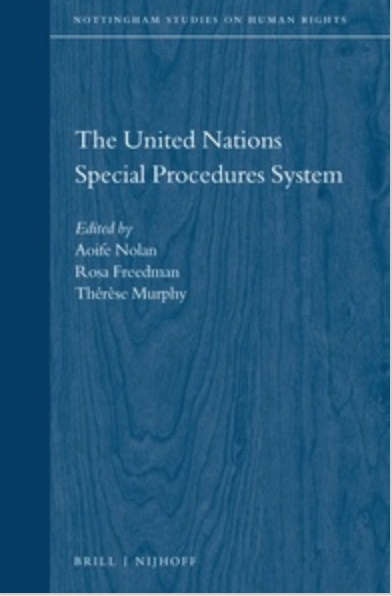
Submitted by Dr E. McPherson on Sat, 25/02/2017 - 02:03
Together with Thomas Probert, I wrote a chapter on 'Special Procedures in the Digital Age' for the new book, The United Nations Special Procedures System, edited by Aoife Nolan, Rosa Freedman and Thérèse Murphy.
Here's the abstract: Drawing on the research we contributed to Special Rapporteur Christof Heyns’ thematic report, we outline the implications of information and communication technologies (ICTs) for Special Procedures’ practices to protect and promote human rights. We focus in particular on mandate holders’ formal communications, though many implications of the use of ICTs apply more broadly to Special Procedures’ work.
The communications mechanism allows victims or those acting on their behalf to submit petitions documenting human rights violations to Special Procedures, who then evaluate these submissions and convert those deemed actionable into communications to implicated States. ICTs have the potential to transform the communications mechanism through supporting Special Rapporteurs in raising awareness of their mandates and through providing more channels for petitioners to submit reports. With these opportunities, however, comes risks both familiar and unprecedented in their extent – including those related to inequality, security, verification, and trust.
In this chapter, we overview ICTs’ implications for each stage of the communications mechanism and make recommendations for Special Procedures on how they might mitigate associated risks. We conclude by supporting Special Procedures’ judicious investment in digital literacy.
